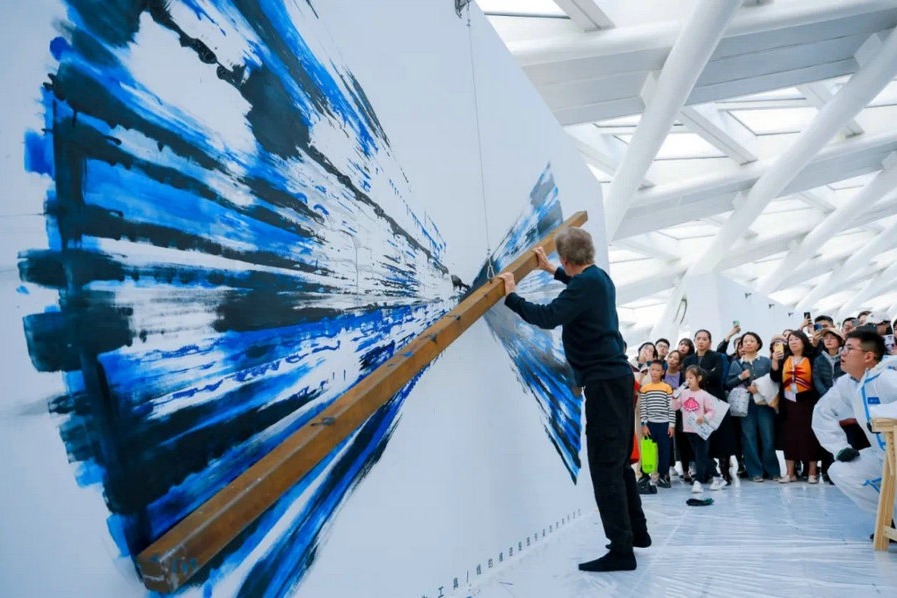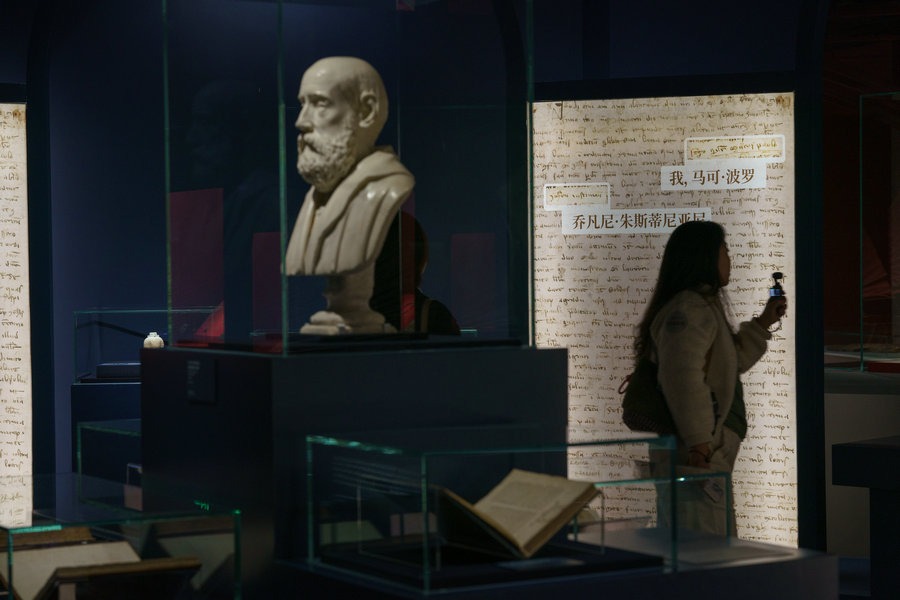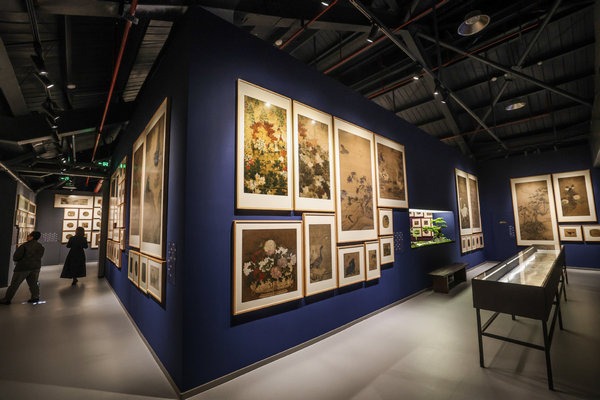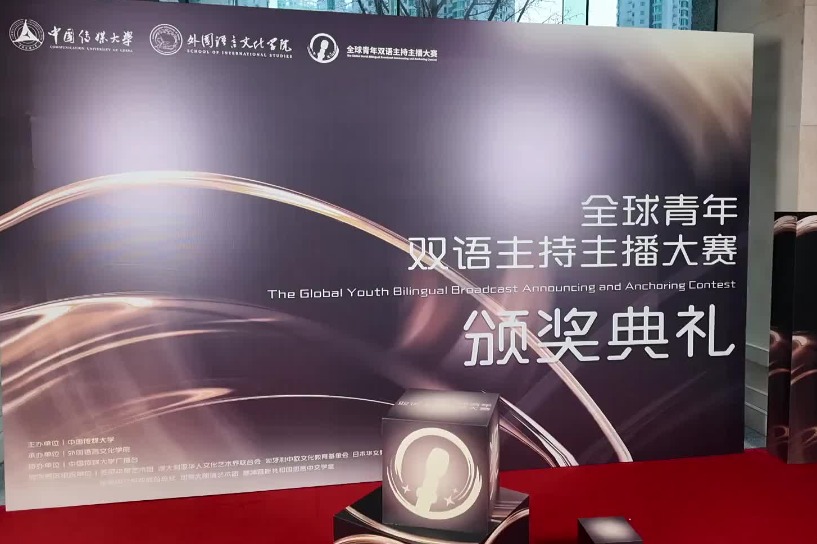Shanghai's China-Brazil festival unites cultures


From samba beats to language workshops, Shanghai University's first China-Brazil Cultural Festival turned its campus into a lively crossroads of rhythm, culture, and creativity.
Held from Oct 20 to 24, the festival celebrated the 50th anniversary of China and Brazil's diplomatic ties.
Organized in collaboration with the Federal University of Bahia in Brazil, it brought together students, faculty, and artists from both nations for a series of interactive events.
At SHU's School of Foreign Languages, Chinese students were introduced to Portuguese, the official language of Brazil, by professors from UFBA.
Before attending the workshop, Wang Jialin, a 23-year-old graduate student in foreign language and literature, knew Brazil mainly for its soccer success. But during the event, she discovered the expressiveness of Brazilian culture.
"When they introduced themselves, they would say 'I enjoy dancing', and the next minute, they were dancing right on the spot," she said, highlighting how Brazilians bring passion into every moment.
Wen Zixia, 23, a French major, noted cultural parallels between China and Brazil.
"Both countries are home to many ethnic groups, and both cultures are open-minded and eager to share," she said. "The professors asked each of us about our hometowns and expressed great interest in visiting them in the future."
Music is also a powerful language of culture. Guan Keyang, a graduate student in music education, participated in a guitar workshop led by Brazilian musician Mario Ulloa, reinforcing her impression of Brazil's rich musical landscape.
"Brazil is famous for samba, and the experience only confirmed it," said Guan.
She recalled a touching moment during a jam session when local artists were invited to participate.
"When they played the same song together with Professor Ulloa, it was moving to see how, despite coming from different parts of the world, they were all connected in that moment," she said.
The festival also introduced students to Brazilian performance arts.
At the Shanghai Film Academy of SHU, workshops showcased expressive techniques that were eyeopening for Chinese students.
"The workshops had a liberating nature, such as using stones as props and performing barefoot," said Liu Xinrui, a graduate student in fine arts.
For Zhu Ying, an 18-year-old freshman majoring in performing arts, the experience was both physical and creative.
"We moved around at different speeds or danced freely to the beat of samba, allowing us to consciously feel and activate our bodies. It was refreshing," said Zhu.
This new perspective also prompted her to reconsider her creative boundaries.
According to Zhu, their regular performance classes typically begin with pre-established scenarios, followed by the determination of characters, settings, and timelines. The plot is then developed and performed accordingly.
However, during one of the festival workshops, students were paired up and tasked with communicating without words, relying solely on eye contact and gestures.
"There was a magnetic interaction between us, which inspired the creation of certain plotlines through our imagination," she explained.
Zhu believes that events like this help students reassess their performance and creative processes.
"It pushes us to step out of our usual routines and explore new possibilities for innovation," she said.
Wen emphasized that although the festival lasted only four days, this immersive experience was valuable and enlightening.
"Interacting directly with someone from Brazil allows us to truly connect with their culture," she said. "It's something that can't be replaced by simply reading about it online."
Shi Yanbing, a 23-year-old graduate student majoring in foreign language and literature, participated in promoting the event on campus and emphasized the importance of cultural exchanges.
"Understanding each other's culture helps reduce misunderstandings and biases," she said. "It allows us to better share our traditions and ideas."





































